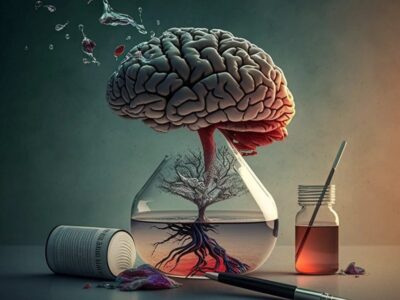Understanding Dissociative Identity Disorder: Dissociative Identity Disorder (DID), formerly known as Multiple Personality Disorder, is a complex and often misunderstood mental health condition. This disorder is characterized by a disruption in the normal integration of consciousness, memory, identity, emotion, perception, and behavior. Unraveling its intricacies is important to provide effective support and foster awareness. Let’s Understand Dissociative Identity Disorder.
What is Dissociative Identity Disorder?
Dissociative Identity Disorder (DID) is defined by the presence of two or more distinct personality states or identities, each with unique characteristics and patterns of thinking. These shifts in identity often lead to memory gaps, changes in behavior, and disruptions in the sense of self. Such transitions are involuntary and may cause significant distress, impacting daily functioning. According to the DSM-5-TR, DID is coded as 300.14 (ICD-10 F44.81), underscoring its recognition as a significant psychiatric condition.
Symptoms of Dissociative Identity Disorder
Understanding the symptoms of DID is crucial for diagnosis and intervention. Key symptoms include:
- Identity Disruption:
- The presence of two or more distinct personality states.
- These states may involve changes in sense of self, agency, and behavior.
- The discontinuity is often accompanied by alterations in consciousness, memory, and perception.
- Recurrent Memory Gaps:
- Inability to recall everyday events or important personal information.
- These memory lapses extend beyond ordinary forgetfulness and may include traumatic experiences.
- Distress and Impairment:
- Symptoms cause clinically significant distress or impair social, occupational, and other areas of life.
- Cultural and Religious Considerations:
- The disorder is not a normal part of cultural or religious practices.
- Symptoms in children are not better explained by imaginary play or fantasy.
- Exclusion of Substance Use:
- The symptoms are not attributable to substance use or medical conditions, such as complex partial seizures.
Identity Shifts and Personal Preferences
Individuals with DID often experience sudden shifts in preferences – from food choices to clothing styles. These shifts are not under conscious control and can be disorienting. During these episodes, individuals might feel detached, as if observing their actions from the outside. This sensation often comes with physical changes, such as perceiving themselves as a different age, gender, or physical size.
Alternate States and Terminology
The phenomenon of DID is often described using terms like “alters,” “alternate personalities,” or “states of consciousness.” Each identity within an individual is distinct yet remains part of a unified person. These alternate states serve as a coping mechanism, often rooted in early-life trauma, to handle overwhelming experiences.
Diagnosis and Criteria
The DSM-5-TR criteria for diagnosing DID are stringent to ensure accurate identification:
- The presence of two or more distinct personality states.
- Memory gaps inconsistent with typical forgetting.
- Symptoms that lead to significant distress or impairment in daily functioning.
- Exclusion of cultural practices, childhood fantasy, substance use, or medical conditions.
Impact on Daily Functioning
The extent to which DID affects daily life varies significantly among individuals. Some may exhibit subtle signs, making their condition difficult to detect. Others experience profound disruptions in their social, occupational, and personal lives. Many individuals develop adaptive strategies to mask their symptoms, adding another layer of complexity to diagnosis and treatment.
Cultural Sensitivity and Considerations
Cultural context plays a significant role in understanding DID. In some societies, possession-like experiences are seen as spiritual or religious phenomena rather than psychological conditions. Differentiating between culturally accepted practices and pathological symptoms is vital for accurate diagnosis.
Causes and Early-Life Trauma
DID is often linked to severe and chronic early-life trauma, such as physical, emotional, or sexual abuse. The development of alternate identities serves as a defense mechanism to cope with unbearable experiences. This connection underscores the importance of trauma-informed care in treatment.
Treatment Approaches for DID
Effective treatment for DID typically involves:
- Psychotherapy:
- Focused on integrating identities and processing trauma.
- Cognitive-behavioral therapy (CBT) and dialectical behavior therapy (DBT).
- Medication:
- While there is no specific medication for DID, antidepressants and antianxiety medications may address co-occurring symptoms.
Breaking the Stigma Surrounding DID
Understanding Dissociative Identity Disorder: Dissociative Identity Disorder remains one of the most stigmatized mental health conditions. Misrepresentations in media and popular culture contribute to misunderstandings. Raising awareness and educating the public about the realities of DID can foster compassion and support for those affected.
If you are experiencing any mental health issue, or know someone, who is suffering. Seek Professional Help and talk to your mental health expert. Your mental health care is our priority. Your life is precious; take care of yourself and family. You are not alone. We are standing by you. Life is beautiful. Live it fully. Say yes to life. Welcome to life.
Live Again India Mental Wellness
L@A



